Table of contents
What is menopause?
Menopause is a term used when you do not have your period for 12 months and it generally happens in women after their 40s or 50s. Most women during this period become concerned about their overall health and the effects of menopause on their mental health; however, they should know that the risk of suffering from anxiety, depression, and stress for them is no more than other women!
What are some common symptoms of menopause?
Women might realize that they do not have their periods on the old regular basis, and they gradually fade away. They might also notice some irregular secretions from the vagina. The gradual increase in body temperature is another common symptom. Some women also complain from increased facial hair, thinning hair and dry skin. Some other symptoms include anxiety, mood changes, sleep problems, night sweating, weight gain, and loss of breast fullness.
What are some supplements used for relieving menopause-related symptoms?
Calcium
Calcium is a dairy product which can be found in milk, cheese, yogurt, figs, canned salmon, and almonds. A female hormone called estrogen helps maintain the bone health. This hormone decreases in menopause leading to bone loss. Calcium can help you decrease the bone loss caused by menopause. If you use calcium supplement with food, it’ll help you better.
Vitamin D
Vitamin D is not less important than calcium because it helps to absorb calcium. There are two sources from where you can get this supplement:
- the sun; vitamin D is called the “sunshine vitamin”. When your skin is exposed to the sun it makes vitamin D from cholesterol
- 2- dietary intake; however, the latter is preferred due to the probable damage that sun can cause to your skin.
St. John’s Wort
St. John’s wort is a flowering shrub which blooms on the birthday of the biblical John the Baptist. It is found as a supplement in teas, tablets, liquids, and topical preparations. This supplement is best known for its beneficial effect on mood changes. There is also some evidence that it can be beneficial for menopause-related mood swings and for decreasing the sense of increased temperature, especially when combined with black cohosh.
Black cohosh
Black cohosh is a plant which mostly grows in North America. It is generally used to relieve symptoms like night sweats and increased body temperature. It is associated with a low incidence of side effects. However, some reported side effects are breast pain/ enlargement, musculoskeletal complaints (like muscle aches), vaginal bleeding/ spotting, and infection.
You should not use this plant if you have a history of liver disease; it means that people suffering from hepatitis, liver cancer, or fatty liver disease (excess fat in your liver) you should not take this supplement.
If you are taking this supplement, you should note that these adverse reactions and unwanted side effects are probable:
- Mild nausea (feeling of unease and discomfort and an urge to vomit)
- Upset stomach
- Skin rashes
Red clover
Red clover belongs to the legume family, and it is a kind of a wild plant. It is used for several conditions like some skin conditions, respiratory diseases, and cancer. It is used to improve some of the menopausal symptoms including increased body temperature, night sweats, and bone loss but some recent studies does not support this.
Red clover is not safe for children, pregnant or breastfeeding women, and women suffering from breast cancer or other hormone-sensitive cancers, like endometrial and ovarian cancer.
If you are taking this supplement, you should note that these adverse reactions such as Headache and Nausea are probable. Also, you should not take supplement for more than 1 year.
Dong quai
Dong quai or African sinensis is a plant that is used for several conditions like menopausal symptoms and migraine. This supplement is suggested to be beneficial for the sense of increased temperature and night sweats when combined with red clover, black cohosh, and chamomile; however, its efficacy needs to be investigated. It also improves the quality of sleep both before and after menopause. You should not use this plant if you take blood thinners like warfarin or aspirin. If you are taking this supplement, you might experience increased skin sensitivity to the sun; it means that you might develop some itchy red rashes on your skin.
Evening primrose oil
Evening primrose oil is a plant with yellow flower petals which bloom in the evening. It grows in the North America and Europe. It used to treat the sense of increased body temperature and bone losses. Talk to your doctor before taking this supplement if you take HIV drugs like lamivudine or are on other supplements or medication.
Maca
Maca is a kind of vegetable which was used by Peruvians as a food and a medicine. Many of the physicians believe that Maca might be a useful drug alternative for the relief of the menopausal symptoms. It is used to increase sexual drive and decrease depression and anxiety (feeling of fear, dread, and uneasiness).
Soy
Soy is a plant-derived protein which is present in Asian culture for thousands of years. You might find a footprint of soy in soymilk, miso, tofu, tempeh, soy sauce, and soy flour. It may decrease the incidence and duration of senses of increased body temperature, as well as maintaining bone health. You should not use this supplement if you have a soy allergy.
If you are taking this supplement, you should note that these adverse reactions are probable:
- Stomach pain
- Diarrhea (loose, watery stool)
Flax seeds
Flaxseed or linseed is a flax plant-derivative which was used as a food and a medication by Egyptians in the past. It is rich in alpha-linolenic acid which is an omega-3 fatty acid, therefore it is beneficial or heart disease, arthritis, inflammatory bowel disease (IBD), and many other conditions. In addition, flax is beneficial to reduce senses of increased body temperature and bone loss. As a result, it is considered very safe and it is a great way to increase your healthy fats and fiber intake!
Ginseng
Ginseng is one of the most commonly used herbs worldwide can increase the sex drive, mood, and general sense of well-being. Moreover, can help elevate your heart health, immune system (the system in your body that fights microbes and unwanted invaders), and energy levels. There are no natural food sources containing ginseng; however, it is sometimes added to foods and energy drinks. You can find ginseng in the form of capsules, powder, dried herbs, and tea.
You should talk to your healthcare provider before using Ginseng if you take certain blood pressure medications, cholesterol medications like statins, blood-thinners like warfarin or aspirin, and if you have diabetes.
If you are taking this supplement, you should note that these unwanted side effects are probable:
- Skin rash
- Diarrhea (loose and watery stool)
- Dizziness (feeling faint, woozy, or unstable)
- Difficulty sleeping
- Headache
- Impaired blood sugar control
Valerian
Valerian is a popular sleep aid which has been used since ancient Greek and Roman times for several health issues including insomnia. Sleep problems become more disturbing as people age and it might be accentuated with menopause. Valerian can be used to relieve insomnia (sleeplessness) and the sense of increased body temperature but there is room for more research. You should not take valerian if you take: medications for sleep, pain, or anxiety (a feeling of fear, dread, or uneasiness), kava, melatonin, St. John’s wort.
If you are taking this supplement, you should note that these adverse reactions are probable:
- Digestive upset: that means that you might feel uncomfortable after eating food
- Headaches
- Drowsiness (feeling abnormally asleep during the day)
- Dizziness (feeling faint, woozy, or unstable)
Final Word
If you believe you are going through menopause, talk to your physician. They can direct you towards an herbal supplement for menopause and be an excellent tool for managing menopausal symptoms.



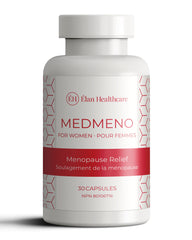
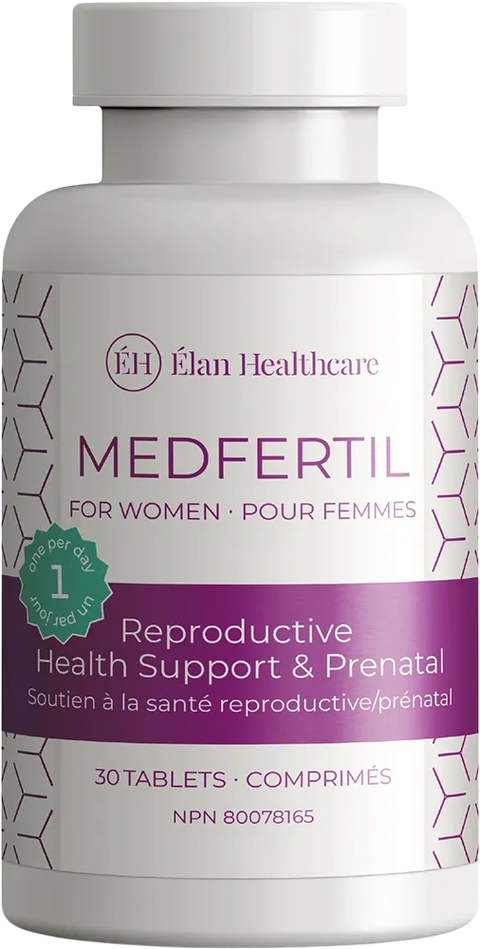

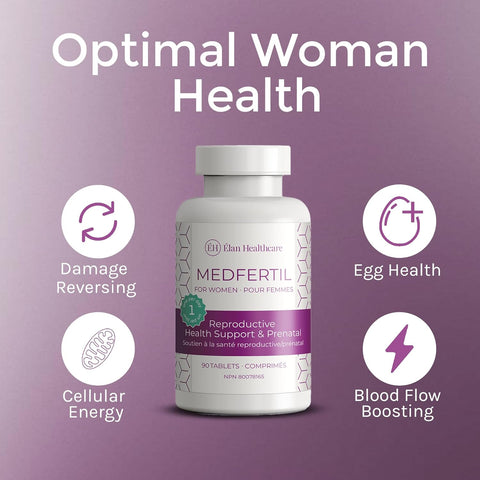

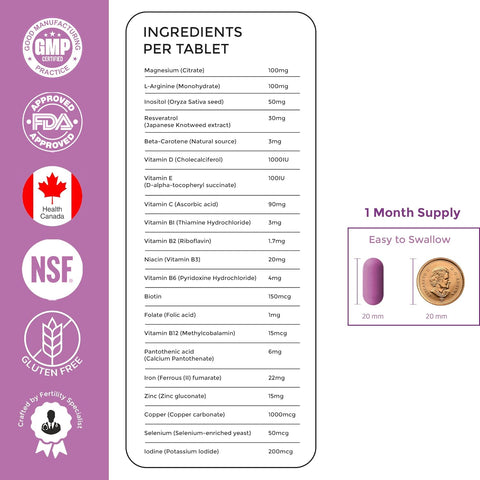

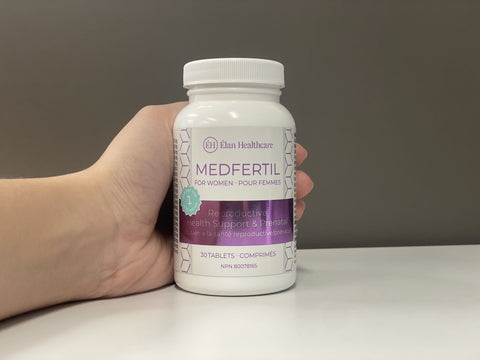

No comments yet.
There are no comments for this article. Be the first one to leave a message!
+ Open to leave a Comment